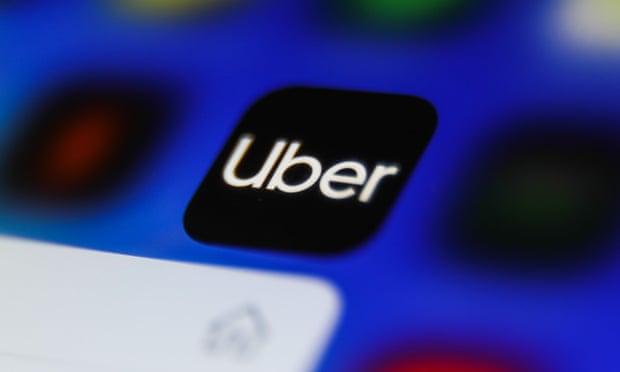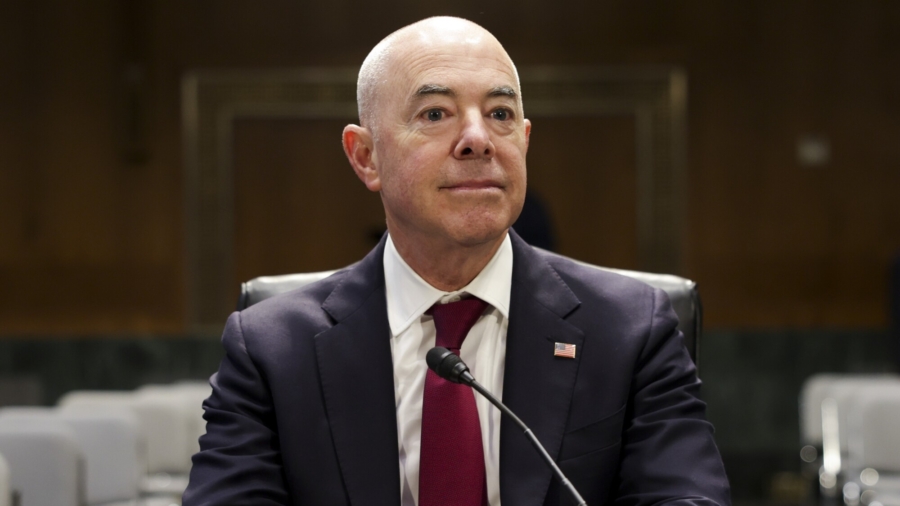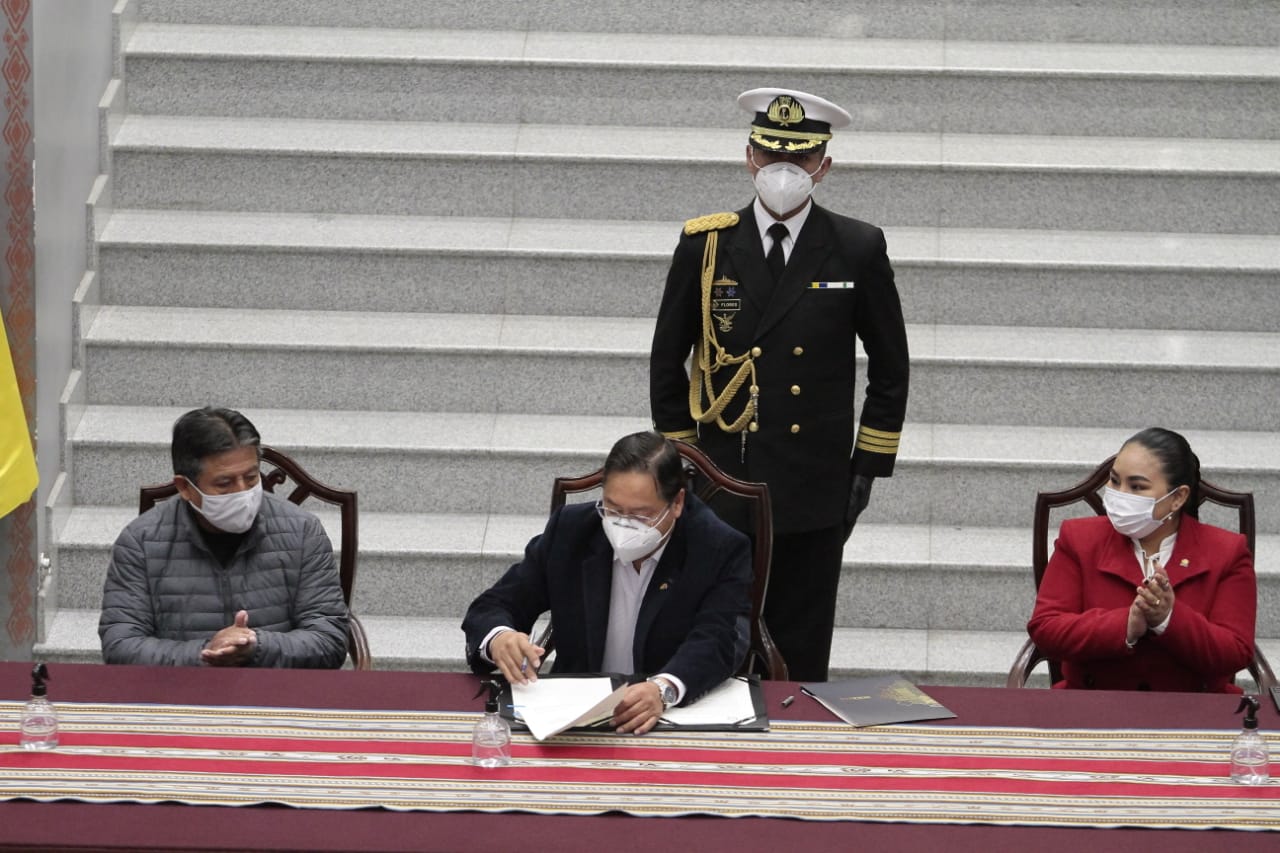The Uber files
Barely Legal: The Global Uber Enterprise
The lobbying of Uber should, along with those of other corporate giants, only surprise those prone to pollyannaish escapism. Its hungry, desperate behaviour takes place in plain sight, and denials merely serve to emphasise the point. It resembles, in some crudely distant way, the operating rationale of the notorious British sex pest Jimmy Savile, who preyed upon his victims with the establishment’s complicity.
In terms of the gig economy, there are few more ruthless buccaneers than this San Franciscan ride-share company that has persistently specialised in cutting corners and remaking them. Those taken aback by the latest leaked files about Uber’s conduct would do well to remember the initial stages of the company’s growth, and the protests against it. Globally, the taxi fraternity raged against the encroachment of this new, seemingly amorphous bully. Some authorities heeded their wishes, seeing an alternative option in transportation.
In September 2017, Transport for London refused to renew the company’s license, accusing the company of lacking “corporate responsibility in relation to a number of issues which have potential public safety and security implications.” For all such rowdy, boisterous resistance, the company continued to spread its tentacular reach, inculcating users and drivers with ratings, incessant surveillance and behavioural observation.
The Uber leaks give us ringside seats to the decision making of the company. Files numbering some 124,000 spanning the period between 2013 to 2017, were leaked to The Guardian and found their way to 180 journalists across 29 countries through the International Consortium of Investigative Journalists (ICIJ). These include the savoury essence of over 83,000 emails, iMessages and WhatsApp messages exchanged between then CEO Travis Kalanick and various company executives.
The ICIJ brings out a big gun from the off. In 2015, France’s taxi drivers showed their incensed displeasure with the company by setting fire to tyres, overturning cars and blocking access to airports. The result of the protest was initially significant, leading to a suspension of the company’s operations and a nationwide ban. “Needing a friend in government to smooth things over,” states the ICIJ with gotcha confidence, “Uber’s chief European lobbyist sought help from a young French minister on the rise: Emmanuel Macron.”
They had good reason to feel plucky. Mark MacGann, the lobbyist in the question, is found sending a text to the then French economy minister on October 21, 2015 expressing concern about the ban. “Could you ask your cabinet to help us to understand what is going on?” Macron promises to “look into this personally” and urges “calm at this stage”.
Within hours, the suspension order was being reconsidered. “The local government in Bouches du Rhones will modify its decision and press release to clean up the statements that set off such confusion,” a relieved and grateful MacGann informs Macron. “Thank you for your support.” Macron expresses his own gratitude for the company’s “measured response.”
This picture, according to the leaked messages, emerges from some dozen undisclosed communications and, at the latest count, four meetings between representatives of Uber and Macron. It prompted French MP Aurélien Taché to call it “a state scandal.” Mathilde Panot, parliamentary leader of the left opposition party France Unbowed gave the perpetrator of the scandal an even better description. Macron had shown himself to be a lobbyist for a “US multinational aiming to permanently deregulate labour law”.
The current French President is not the only one to have been taken in by the service. The Prime Minister of the Netherlands, Mark Rutte, had some advice to give the company. “Right now you are seen as aggressive,” he said with dreary triteness. His solution to Kalanick: “Change the way people look at the company”. Focus on the good. “This will make you seem cuddly.”
Given the protests against Uber globally, both in terms of drivers and users, the company chewed over a strategy of reverse emphasis. The true problem, went this line of marketing, was the vicious, lazy, monopolising taxi driver. Along the way, the company could also discount the welfare of Uber drivers while extolling the merits of a more liberal marketplace hankering for transportation options. “Violence,” exhorted Kalanick like the privateers of old, “guarantee[s] success.”
Spokesperson for Kalanick, Devon Spurgeon, comes close to degrading the old cabbies, suggesting that the Uber model was refreshingly competitive in the face of industry sclerosis. Kalanick and company, explained Spurgeon to the ICIJ, “pioneered an industry that has now become a verb.” To do so required them to break a few eggs and rules on the way “in an industry where competition had been historically outlawed. As a natural and foreseeable result, entrenched industry interests all over the world fought to prevent the much-needed development of the transportation industry.”
Perhaps most revealingly of all, and typical of the East India Company ethos of this titan, was the delight company members found in flouting laws and soiling regulations. Its “other than legal status” was a point of constant excitement, notably in a range of countries from South Africa to Russia. In the uncoated words of Uber’s head of global communications, Nairi Hourdajian, written to a colleague in 2014 as attempts in Thailand and India to shut down the company were afoot, “Sometimes we have problems because, well, we’re just fucking illegal.”
The battles against Uber’s corporate banditry continue, none more passionately and committedly waged than by the workers themselves. Uber drivers have managed to make a case in the Netherlands and the UK that they are protected by the jurisdiction’s labour laws.
The same cannot be said about the United States, where freedom of contract and the tyranny of uneven pay prevail. As Joe Biden, well wooed by Kalanick as US Vice President, said in his adjusted 2016 speech at the World Economic Forum at Davos, there was a company able to give millions of workers “freedom to work as many hours as they wish, manage their own lives as they wish”. The Uber cofounder was less enthused by the vice presidential vessel. “Every minute late [Biden] is,” he wrote in a text to a co-worker, “is one less minute he will have with me.”
The company’s board can also rest easy in one respect. They have majority shareholder support to ensure that a lack of transparency regarding spending and lobbying activities will be permitted to continue. While the veil continues to operate, current CEO Dara Khosrowshahi is also aggressively pursuing a policy of sprucing and cleaning the company’s image. This pirate of transportation is turning cuddly.
By Turkish Minute
- July 12, 2022
Namık Tan, Turkey’s former ambassador to the United States, has confirmed claims that global ridesharing company Uber had in 2016 hired a company jointly run by him and the then-head of the Turkish American Businessmen’s Association for $35,000 a month for three months to help obtain a license to operate in Turkey, the T24 news website reported on Tuesday.
According to the Uber Files published by Deutsche Welle Turkish service on Sunday, the San Francisco-based Uber secretly lobbied Turkish officials and hired well-connected lobbyists to legalize its rideshare operations in Turkey, with Tan and Ekim Alptekin’s company NT Consultancy one of them.
The efforts eventually failed.
Soon after it began operating in Turkey in 2014 through a legal loophole, Uber launched an aggressive lobbying campaign to obtain licensing, contacting people with close ties to Turkish President Recep Tayyip Erdoğan, including top government officials such as then-deputy prime minister Ali Babacan and economy minister Mehmet Şimşek, DW said.
As part of its lobbying efforts in Turkey, Uber hired NT Consultancy in 2016, paying them $105,000 in total to help obtain a license in the country, a claim confirmed by Tan, who on Tuesday told T24 that they signed a three-month contract with Uber after he was contacted by David Plouffe, a senior adviser to then-US president Barack Obama.
“It has been five years since the aforementioned company closed down. … What is said in the news is true. We signed a contract. … And I still believe that Uber should be allowed here. But we weren’t successful. The taxi driver lobby in Turkey, which is powerful, opposed it. We even talked to them and their representatives, too, so as to work with them. But we didn’t succeed,” Tan said.
The DW report also cited Uber executives as saying that “pro-government” Habertürk daily columnist Fatih Altaylı had published two articles to present positive coverage of Uber, a claim that was denied by the columnist.
Altaylı on Tuesday told T24 that he had “written no favorable columns about Uber,” urging people to check the archives to find the articles he did write.
Uber’s lobbying efforts failed as a local court banned the company’s website in October 2019 for using vehicles that have tourism transportation licenses for taxi operations. In 2020, another local court lifted the ban on the condition that it work with local taxi drivers, who were behind a fierce campaign that pushed the ride-hailing giant out of the market in the first place.
Erdoğan’s Justice and Development Party (AKP) government consistently sided with taxi drivers in the years-long feud between Uber and the local taxi unions.
High-profile professors in Europe and the US were engaged as part of lobbying campaign, leak shows

Felicity Lawrence
Uber paid high-profile academics in Europe and the US hundreds of thousands of dollars to produce reports that could be used as part of the company’s lobbying campaign.
The Uber files, a cache of thousands of confidential documents leaked to the Guardian, reveal lucrative deals with several leading academics who were paid to publish research on the benefits of its economic model. The reports were commissioned as Uber wrestled with regulators in key cities around the world.
University economists were targeted in France and Germany where enforcement by the authorities was increasingly fierce in 2014-15.
One report by a French academic, who asked for a €100,000 consultancy fee, was cited in a 2016 Financial Times report as evidence that Uber was a “route out of the French banlieues”, delighting Uber executives.
Documents show how its lobbyists planned to use academic research as part of a production line of political ammunition that could be fed to politicians and the media.
The aim was to use the research to increase pressure for changing the rules Uber was evading. While Uber’s involvement in reports was mentioned, leaked files expose how it wanted to use academics’ work and their reputations to further its aims, and how much it was prepared to pay them.
Emmanuel Macron secretly aided Uber lobbying drive in France, leak reveals
In France, the €100,000 consultancy arrangement was negotiated with a rising star of university economics, Prof Augustin Landier of the Toulouse School of Economics. Landier agreed to produce a report that he described in emails to Uber’s policy and communications team as “actionable for direct PR to prove Uber’s positive economic role”.
Landier proposed collaborating with David Thesmar, another high-profile professor from France’s top business school, École des Hautes Études Commerciales de Paris (HEC).
In discussions in February 2015, Uber executives noted that although the price was high, it was worth it, especially if they worked on the report’s messages “to ensure it’s not presented in a potentially negative light”.
The report came amid intense debate about job losses caused by Uber, with Emmanuel Macron, who was then France’s economy minister, trying to force through economic changes.
An Uber policy team member wrote at the time that “a quantified validation of the new type of work Uber creates in Europe, especially when conducted by an economist of Landier’s renowned stature, would help us tremendously”.
Scholars were excited about Uber’s data because it gave them rare real-time evidence about the effect of prices on markets – one of the key issues among liberal economists arguing for free markets.

In return for the consultancy fee, Landier also wanted to produce a separate unpaid study using Uber data. The leak shows Uber executives were concerned that would mean “we lose editorial control”, but a senior staffer concluded: “We see low risk here because we can work with Landier on framing the study and we also decide what data we share with him.”
The day before the publication of Landier and Thesmar’s report in March 2016, the FT story citing it appeared. “Ride-hailing apps have created jobs for Paris’s poorer youth, but a regulatory clampdown looms,” the article said.
Thesmar was quoted in the piece saying that Uber was a “social gamechanger”.
The report had a third co-author, Daniel Szomoru, an internal Uber economist. While his employment and the academic consultancy arrangement with Uber were acknowledged in a footnote, details of the fee were not. Neither Szomoru nor the fact the report was paid for by Uber were mentioned in the FT piece.
Some of the key qualifiers in the report did not appear in press coverage – including the academics’ conclusion that Uber drivers who did not make good money tended to drop off the platform.
The report detailed how these drivers received “payouts” on average of €19.90 an hour. But that did not factor in the substantial costs that drivers have to pay – such as car hire, insurance and fuel – that had to be deducted from this average “payout” before earnings could be calculated. In the FT’s story, which was retweeted by Landier and others, this became simply: “Most earn €20 an hour, more than twice the minimum wage.”
Uber was thrilled with the FT story. “Wow!” wrote one person, congratulating the team who “landed it”.
The FT said its article was based on its own extensive field reporting that covered the downsides of driving for Uber, including low pay, as well as the benefits, and that it had not been proactively approached or briefed by Uber. It quoted experts other than Thesmar and made clear his work was based on Uber data, and it stood by its reporting, a spokesperson said.
Landier and Thesmar said their paid consultancy for Uber was declared and transparent. They declined to comment further.
Hubert Horan, an economist at the University of Chicago’s Stigler Center and a long-term critic of Uber’s model, said academics generally ignored the fact that Uber was spending billions of dollars of investor cash to subsidise both drivers and passengers and that “payouts” to drivers were not the same as income. Claims about the quality of jobs or prices were therefore unsustainable, he argued.
“Uber used techniques that had proven successful in partisan political settings to create the widespread belief that a company that has lost over £20bn was highly innovative and created huge benefits for consumers and cities,” he said. “It became an unstoppable PR juggernaut.”
When discussing a quick €10,000 commission for another French economist, Nicolas Bouzou, described as having “high potential to leverage this work in the mainstream media”, Uber executives agreed that organising this through a thinktank would “add credibility to the analysis” . They also talked about “milking” the Landier report at the same time.
Bouzou published his report for Uber in January 2016. He said that the report made no claim to be an academic study and the Uber funding was declared. He acknowledged that the reliability of data from corporate clients was “for us a major risk”, but said he never framed his reports to suit a client’s marketing needs.

In Germany, where authorities were clamping down on Uber’s breaches of regulations in 2014, Prof Justus Haucap, a leading economist at Düsseldorf University’s Institute for Competition Economics (DICE), agreed to produce a study on “consumer benefits from a liberalisation of the German taxi market”.
The study was conducted in collaboration with a consultancy arm of the German Institute for Economic Research (DIW), described by Uber executives in internal emails as “the thinktank that has greatest sway with the current [German] government”, for what the leak suggested was a fee of €48,000 plus VAT.
The academics were expected to help promote the research at events and in the press, a leaked service agreement and invoices suggest.
Haucap launched the report at events for influencers and politicians in Berlin.
Haucap, his consultancy firm DICE Consult and DIW all said that while the data was provided by Uber, the study met rigorous independent, scientific standards and was not predetermined by Uber. They added that it was identified as a paid report for Uber.
One of the first deals sealed by Uber with top academics was with Prof Alan Krueger at Princeton University in the US in 2015. Krueger had been Barack Obama’s chief economic adviser and was famous as an authority on raising the legal minimum wage, so held particular influence when it came to advocating for Uber’s impact on employment.
The Uber files reveal for the first time that he was paid about $100,000 for a study that was widely quoted in support of Uber as a creator of good jobs precisely because it operated outside the rules. Internal Uber emails note that he was “helpful with the press”.
The study subsequently attracted controversy. Krueger, who died in 2019, acknowledged his paid consultancy work for Uber but never said how much he had been paid. Other academics said its conclusions could not be peer-reviewed because its data was not openly shared.
Uber said that opening its data to researchers provided important insights into the changing nature of work and mobility, and that where it paid academics the relationship was always disclosed. The Landier and Thesmar report made clear that the “payout” figures it gave did not take drivers’ costs into account, it said, adding that Uber datasets were available to people wanting to review research if they signed a data use agreement.
Half a decade later, Macron can point to a record of success. In January, he hailed the emergence of 25 French tech “unicorns” — now each valued over $1 billion — comfortably ahead of his own earlier target of having 25 such companies by 2025. By 2019, once-notoriously statist France had already become the leading destination for foreign investment in all of Europe.
This was in part thanks to liberalizing measures the French president pushed through, including cuts to the corporate tax rate, a flat tax on capital gains and the streamlining of France’s labor code that made it easier to hire and fire employees. Macron’s government helped encourage billions of dollars worth of foreign investment into the tech sector and offered generous tax credits to certain types of tech businesses.
“American funds were afraid of France for mythical reasons: the taxes, the strikes, a lot of fantasies,” Romain Lavault, general partner at Partech Ventures in Paris, told Bloomberg News last year. “They have been courted, and it’s worked.”
His political opponents, who battled Macron in a bruising presidential and parliamentary election cycle this year, long resented Macron’s approach. They argued that it sundered France’s social solidarity and drove deeper economic inequality. Far-left leader Jean-Luc Mélenchon decried what he dubbed the “Uberization” of French society — invoking the U.S. ride-share leviathan as part of a catchall descriptor for Macron’s perceived assault on French worker rights in the service of the interests of wealthy elites
Until this week, we didn’t quite know how on the nose that term was. Amid a slew of revelations contained within a mammoth leak of documents is considerable evidence of Macron’s cozy dealings with Uber while serving as France’s economy minister from 2014 to 2016. As my colleague Rick Noack noted: “Macron’s backing went far beyond what has been known publicly and on occasion conflicted with the policies of the leftist government he served.”
The more than 124,000 company documents were leaked by Mark MacGann, a former high-ranking Uber executive and European lobbyist, to the Guardian. The outlet shared the vast trove with the International Consortium of Investigative Journalists, which helped lead the project, and dozens of other news organizations, including The Washington Post. The Uber Files, which date to between 2013 and 2017, reveal the ride-hailing company’s aggressive entrance into cities around the world — while frequently challenging the reach of existing laws and regulations.
“I was the one talking to governments, I was the one pushing this with the media, I was the one telling people that they should change the rules because drivers were going to benefit and people were going to get so much economic opportunity,” MacGann said in an interview published Monday. “When that turned out not to be the case — we had actually sold people a lie — how can you have a clear conscience if you don’t stand up and own your contribution to how people are being treated today?”
MacGann had a direct line to Macron while the latter was economy minister. In one instance, after local officials in Marseille had banned UberX service in the fall of 2015, MacGann texted Macron for help. “I will look into this personally,” Macron wrote back. “Let’s stay calm at this stage.” The local authority in Marseille soon backtracked.
As the documents revealed, Macron was considered internally by Uber as a “true ally.” At a time when Uber’s notoriously aggressive tactics of expansion landed it in legal hot water, Macron and his staff held several undeclared meetings with company executives.
Uber executives “believed that Macron was willing to support them by pushing for more lenient treatment of the company from regulators,” Noack wrote. Even as legal scrutiny of Uber began to increase — including from Directorate General for Competition, Consumer Affairs and Fraud Prevention — authorities attached to Marcon’s own ministry, MacGann wrote in a 2014 email to colleagues that the French President had “told his cabinet to talk to the DGCCRF to ask them to be ‘less conservative’ ” in interpreting the law.
Asked for comment ahead of publication of the documents, the French presidency said in a statement to The Post and other outlets that the “economic and employment policies at the time, in which [Macron] was an active participant, are well known” and that his “functions naturally led him to meet and interact with many companies.”
Macron’s championing of Uber and similar gig work is no secret. In a 2016 interview, he defended the company, telling his interlocutor to go to a poor suburb and “tell young people there who are willingly working for Uber that it would be better to do nothing or deal drugs.”
But the Uber Files have triggered a new firestorm of criticism. They show Macron to be “a lobbyist at the service of foreign private economic interests,” far-right politician Sebastien Chenu told France Info radio on Monday morning, attacking the president as an “an ideologue for deregulation, for globalization.
Aurélien Taché, a former member of Macron’s centrist party who is now part of the left-wing opposition in parliament, described the findings as a “state scandal” that raised questions about Macron’s “conception of loyalty in politics.” Fabien Roussel, leader of the French Communist Party, said Macron’s behavior was “against all our rules, all our social laws and against workers’ rights.” Mathilde Panot, the parliamentary leader of Mélenchon’s party, said Macron had presided over the “pillage of the country” and had been an agent for a “U.S. multinational aiming to permanently deregulate labor law.”
Though they have few constitutional mechanisms to call Macron in for questioning, opposition parliamentarians hope to launch some form of special inquiry into his actions. A separate no-confidence vote against Macron’s prime minister, Élisabeth Borne, failed Monday.
Macron, as he has for much of his tenure, remained aloof. On Monday, he hosted a major summit of some 180 foreign business executives in the palace at Versailles. Billions of dollars of new deals were on the table, including a close to $6 billion proposal to build a new semiconductor factory near the Italian and Swiss borders. The event is dubbed “Choose France.”














